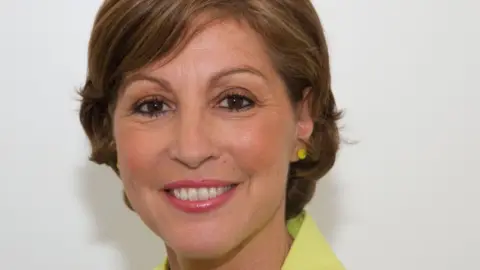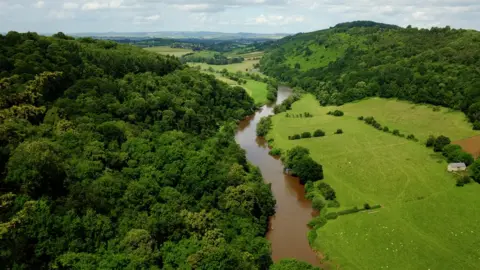Minister turns down Herefordshire Council’s Wye protection bid
 UK Parliament
UK ParliamentA government minister has rejected a council's bid to gain special protection for the polluted River Wye.
Herefordshire councillors voted to back bringing in a water protection zone (WPZ), which would place tighter restrictions on pollution sources.
But Rebecca Pow said it would lead to extra regulatory burdens compared "to businesses in other areas".
The river has had excessive algae growth often caused by high phosphate levels in the water.
In January, a full meeting of councillors voted unanimously to back bringing in a WPZ for the Wye catchment, the Local Democracy Reporting Service said.
It is a measure which would place tighter restrictions on farms and other pollution sources, but which only a government minister can implement.
Council leader David Hitchiner then wrote to Ms Pow, minister for nature recovery and the domestic environment, urging her to bring in the measure, given that "existing regulatory arrangements are insufficient" to deal with the pollution problem.
He said farmers in the county "on the leading edge of farming innovation… would have little to fear from a WPZ as they are doing the right thing anyway".

Ms Pow met Mr Hitchiner and other senior figures at the river shortly afterwards, but she warned at the time that such a zone "would be another tier of regulation".
Now in a letter, which has been published among papers for Wednesday's Wye Catchment Nutrient Management Board meeting, the minister has written back to say a WPZ "would impose new and distinct regulatory obligations on the farmers and businesses within the catchment".
This "would lead to additional regulatory burdens in comparison to businesses in other areas of the country", she said.
The council has been invited to comment by the BBC.

Follow BBC West Midlands on Facebook, Twitter and Instagram. Send your story ideas to: [email protected]
